
Elon Musk wants a volunteer to have their head cut open for his brain implants
Elon Musk's chip implant company Neuralink is looking for its first volunteer since the company got approved to perform tests on humans by the FDA. Prior to its approval for human clinical trials, Reuters reported that the company had killed roughly 1,500 animals during testing. The volunteer would have to be willing to have a piece of their skull removed so a robotic surgeon can insert thin wires and electrodes into their brain. The company told Bloomberg News, the ideal candidate will be a quadriplegic under the age of 40. Neuralink hopes to eventually make a device that will allow people to send messages or play games using only their thoughts. Ashlee Vance, the author of the 2015 biography 'Elon Musk: Tesla, SpaceX, and the Quest for a Fantastic Future', said in his Bloomberg report that despite "an outpouring of interest from thousands of prospective patients," the company is still seeking its first volunteer. The chip would enable computer functions to be performed using only thoughts via a "think-and-click" mechanism. If the ideal volunteer is chosen, a surgeon will remove part of the person's skull, before a robot dubbed "R1", equipped with cameras, sensors and a needle will push 64 threads into the brain whilst doing its best to avoid blood vessels. Reassuring. Each thread has roughly the diameter of 1/14th of a strand of human hair, and is lined with 16 electrodes that are programmed to gather data about the brain. The electrodes record neural activity related to movement intention, which is then decoded by Neuralink computers. Neuralink did not reveal how many participants would be enrolled in the trial or how many patients the FDA ultimately approved, after a negotiation between the company and agency which raised safety concerns, according to current and former employees. DJ Seo, co-founder and vice president for engineering of Neuralink told Bloomberg: "The short-term goal of the company is to build a generalised brain interface and restore autonomy to those with debilitating neurological conditions and unmet medical needs." "Then, really, the long-term goal is to have this available for billions of people and unlock human potential and go beyond our biological capabilities." Indy100 has reached out to Neuralink for comment. Sign up to our free Indy100 weekly newsletter Have your say in our news democracy. Click the upvote icon at the top of the page to help raise this article through the indy100 rankings. How to join the indy100's free WhatsApp channel
2023-11-09 02:19

Habeck Cancels Trip to Portugal in Latest Blow to Web Summit
German Economy Minister Robert Habeck canceled a planned trip to Portugal that was to include attending Europe’s biggest
2023-11-09 01:27
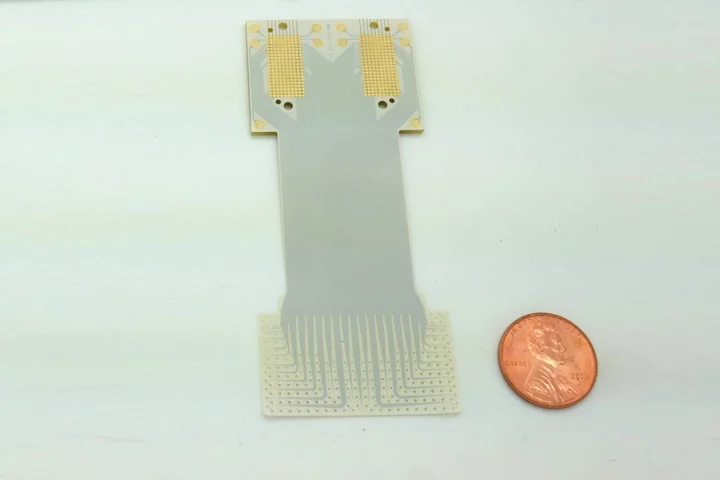
Scientists invent mind-reading device
Scientists have invented a brain implant that allows wearers to communicate using thoughts alone. The speech prosthetic – developed by neuroscientists, neurosurgeons and engineers at Duke University in the US – is able to translate brain signals into words. The researchers claim it is faster and less cumbersome than other brain computer interface and mind reading technologies, and could transform the lives of people suffering from neurological disorders. “There are many patients who suffer from debilitating motor disorders, like ALS or locked-in syndrome, that can impair their ability to speak,” said Gregory Cogan, a professor of neurology at Duke University’s School of Medicine. “But the current tools available to allow them to communicate are generally very slow and cumbersome.” The team was able to pack 256 specially designed microscopic brain sensors onto a postage stamp-sized piece of medical-grade plastic, which was tested on patients undergoing brain surgery for unrelated conditions like having a tumour removed. Participants were asked to listen to a series of nonsensical words like ‘kug’ and ‘vip’ and then speak them aloud. With just 90 seconds of spoken data, an AI algorithm was then used to decode the neural activity into words. The researchers now plan to develop the technology to improve its speed and make it wireless, and have received a $2.4 million grant from the National Institutes of Health to continue. “You’d be able to move around, and you wouldn’t have to be tied to an electrical outlet, which is really exciting,” Professor Cogan said. Duke Institute for Brain Sciences faculty member Jonathan Viventi added: “We’re at the point where it’s still much slower than natural speech, but you can see the trajectory where you might be able to get there.” The research was detailed in a study, titled ‘High-resolution neural recordings improve the accuracy of speech decoding’, published in the journal Nature Communications. Read More ChatGPT goes offline Urgent warning for Gmail users as millions of accounts set to be deleted Political ads on Instagram and Facebook can be deepfakes, Meta says
2023-11-09 00:58
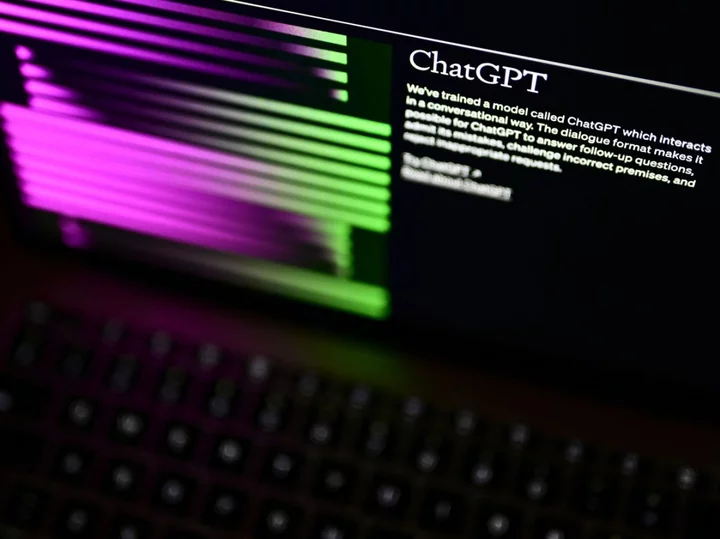
ChatGPT down: AI system goes offline in ‘major outage’
ChatGPT is offline in a “major outage”. Anyone attempting to use the artificial intelligence system saw a warning that it was “at capacity right now”. The error page also includes a ChatGPT-written rap about the status of ChatGPT, which begins with the phrase “Yeah, yo, what’s up ChatGPT fam”. But on its status page, creators OpenAI said it was suffering a “major outage” that was being investigated urgently and had lasted for more than an hour. The latest update on that page indicated that engineers had “identified an issue” with the system and was working to fix it. The problems also affected OpenAI’s API service, which allows third-party services to connect to its AI systems. Both went down at the same time. It is the first major outage on the system for months. While it has seen some problems in recent weeks, they have been partial outages that have slowed or otherwise interfered with ChatGPT’s performance, rather than going fully offline. One of those difficulties came last night, when OpenAI said that both ChatGPT and its API had been suffering from a partial outage. The problems comes days after OpenAI held its first developer conference, on Monday, though there is no indication the two events are connected. At that conference, it announced a range of new features including a new tool it calls “GPTs”, which let people easily create their own custom versions of ChatGPT. During that same event, OpenAI announced that one hundred million people use ChatGPT each week. Some two million developers are also working on the platform, its chief executive Sam Altman said. ChatGPT became the fastest-growing app in history when it launched last November, as well as igniting worldwide excitement and panic over artificial intelligence. It saw 100 million users join in two months, a dramatic record that was later beaten by Meta’s Instagram Threads. Read More ChatGPT update allows anyone to make their own personalised AI assistant How Elon Musk’s ‘spicy’ Grok compares to ‘woke’ ChatGPT ChatGPT and other chatbots respond to emotions, report says
2023-11-08 23:48
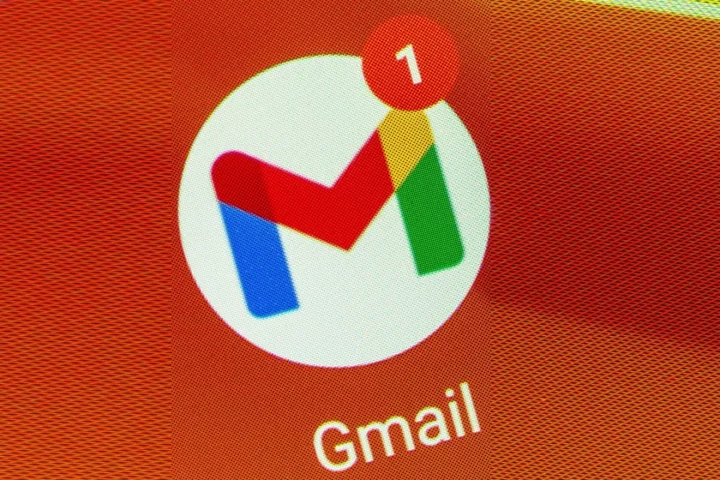
Google to delete millions of Gmail accounts next month in huge purge
Google is set to begin deleting millions of Gmail, Drive and Photos accounts next month as part of a major update to the platform. The purge will impact all personal Google accounts that have been left dormant for at least two years, with emails, documents, spreadsheets, calendar appointments, photos and videos all permanently deleted. The policy was introduced earlier this year but is set to come into effect in December 2023. “We are updating our inactivity policy for Google Accounts to two years across our products,” Ruth Kricheli, Google’s vice president of product management, wrote in a blog post in May. “This update aligns our policy with industry standards around retention and account deletion and also limits the amount of time Google retains your unused personal information.” The move is aimed at protecting active Google users from security threats like phishing scams and account hijacking. Old accounts that have not been used for years are typically at risk from hackers as they may use the same passwords that have been compromised in other security breaches, which are easily available on the dark web. Any account at risk of deletion will receive “multiple notifications” before any action is taken, Google said, including to any associated recovery email addresses. The tech giant has already begun sending emails to those affected, telling users it is “to protect your private information and prevent any unauthorised access to your account even if you’re no longer using our services”. Losing access to a Gmail account could also potentially prevent people from using other online platforms and services that are associated with that email address, even if they are not related to Google. In order to keep an account active and avoid being deleted, Google users are advised to open or send an email, use Google Drive, download an app on the Google Play Store, or simply make a Google Search while logged in to the account. Any account that has posted a video to YouTube will also not be impacted, regardless of when it was last active. Read More ‘Is AI dangerous?’ UK’s most Googled questions about artificial intelligence Big tech poses ‘existential threat’ to UK journalism, survey of editors finds Political ads on Instagram and Facebook can be deepfakes, Meta says
2023-11-08 23:19
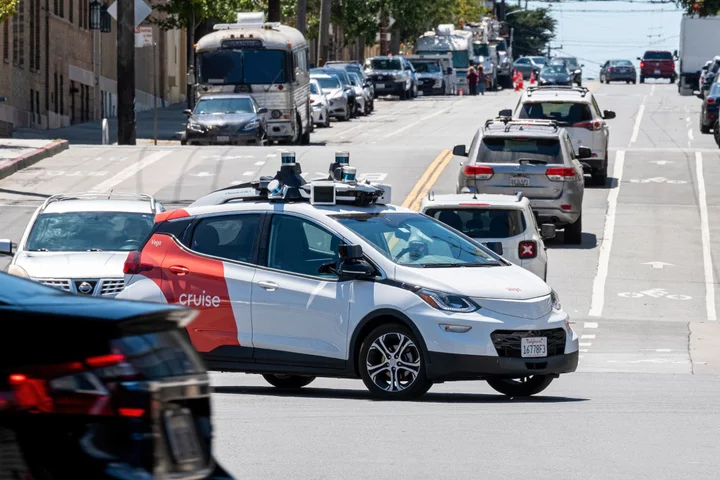
GM’s Cruise Issues Recall After Robotaxi Dragged Pedestrian
Cruise LLC, the robotaxi company owned by General Motors Co., recalled its automated-driving system and deployed a software
2023-11-08 20:55
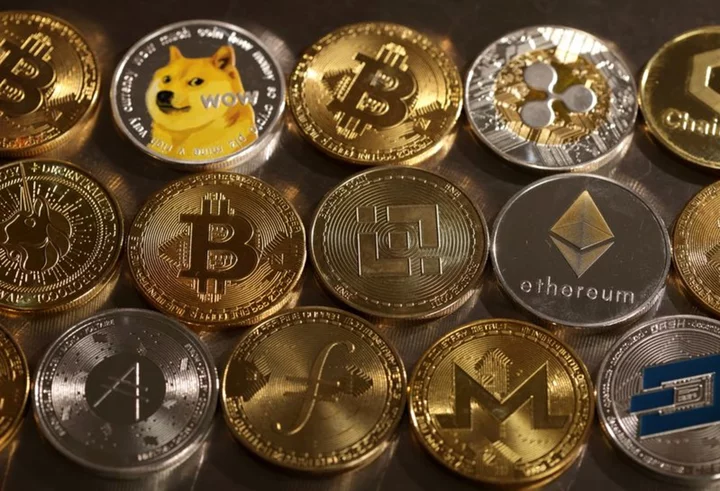
Spanish regulator opens first cryptoasset advertising case
MADRID Spain's stock market supervisor said on Wednesday it had opened its first case relating to a possible
2023-11-08 20:25

Bumble Nears Record Low After Revenue Miss, Surprise CEO Change
Bumble Inc. is nearing a record low after giving a worse-than-expected revenue outlook for the quarter, just a
2023-11-08 20:17

Political ads on Instagram and Facebook can use deepfake technology, Meta says – but they must say so
Ads on Instagram and Facebook can use artificial intelligence technology to create photos, videos and audio of events that don’t actually exist, Meta has said. But those advertisers must make clear that they are not actually real if they are advertising on political or social issues, Meta said. When they do so, Meta will add a small note on the ad that gives information about the fact that it has been created with artificial intelligence. Meta said that it was introducing the new policy “to help people understand when a social issue, election, or political advertisement on Facebook or Instagram has been digitally created or altered, including through the use of AI”. It will go into effect in the new year, across the world, it said. The new policy will require advertisers to make clear if their political ads have an image, video or audio that looks real but was digital created or altered so that it looks like someone is saying something they didn’t, shows a person or event that is not actually real, or poses as a depiction of a real event but is actually fake. If the content is digitally created or altered by in ways that “are inconsequential or immaterial to the claim, assertion, or issue raised in the ad”, Meta said. It gave examples such as using technology to adjust the size or sharpen their image, but noted that those could still be problematic if they change the claim in the ad. But it also said that those fake videos, images and audio will still be allowed to be posted on the site. Instead, Meta will “add information on the ad when an advertiser discloses in the advertising flow that the content is digitally created or altered”, it said, and that same information will appear in Meta’s Ad Library. It said that it would give further information about that process later. It did not say how advertisers will flag such ads, what will be shown to users when they are flagged, and how those who do not flag them will be punished. Meta did say that it would remove any ads that violates its policies, when they are created by artificial intellgience or real people. If its fact checkers decide that a piece of content has been “altered”, then it will stop it from being run as an ad, the company said. “In the New Year, advertisers who run ads about social issues, elections & politics with Meta will have to disclose if image or sound has been created or altered digitally, including with AI, to show real people doing or saying things they haven’t done or said,” said Nick Clegg, Meta’s president for global affairs in a series of tweets that announced the new policy. “This builds on Meta’s industry leading transparency measures for political ads. These advertisers are required to complete an authorisation process and include a ‘Paid for by’ disclaimer on their ads, which are then stored in our public Ad Library for 7 years.” Read More The rise of the AI friend – but what happens when ‘bots’ turn into ‘bad’ mates? Instagram working to let people make AI ‘friends’ to talk to Meta launches paid-for version of Instagram and Facebook
2023-11-08 19:49

HSBC plans custody service for non-crypto digital assets
By Elizabeth Howcroft LONDON HSBC plans to launch in 2024 a custody service for storing blockchain-based assets excluding
2023-11-08 19:26
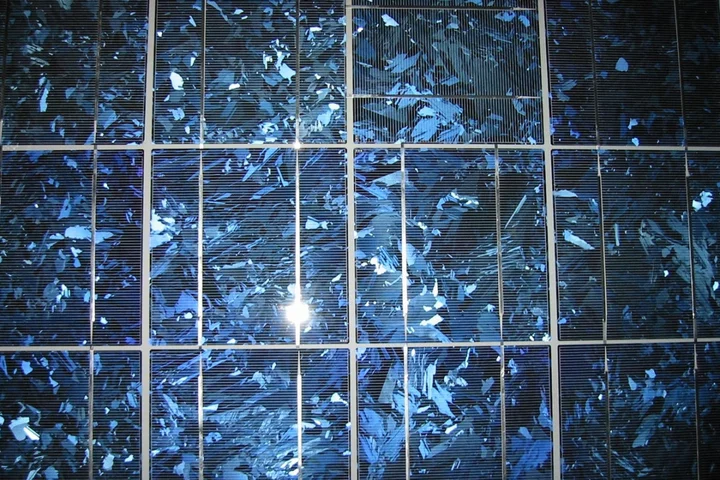
Solar panel world record smashed with ‘miracle material’
Researchers have made a breakthrough with a so-called miracle material to break the efficiency record for solar panel electricity generation. A team from the Chinese solar technology firm Longi set a new world record of 33.9 per cent for a silicon-perovskite tandem solar cell, breaking the previous record set in May this year by King Abdullah University of Science & Technology (KAUST) in Saudi Arabia. The new efficiency record also broke the theoretical limit of 33.7 per cent for the first time of standard single junction cells, which are found in commercial solar panels. “This provides meaningful empirical data to demonstrate the advantage of crystalline silicon-perovskite tandem solar cells over crystalline silicon single junction solar cells in terms of efficiency,” the company noted in a statement. “The emergence of crystalline silicon-perovskite tandem technology has opened up a new track for the development of next-generation high-efficiency solar cell technology. This means that the same area, absorbing the same light, can emit more electricity.” The theoretical efficiency limit of silicon-perovskite tandem solar cells is 43 per cent, however this level is unlikely to ever be realised on a commercial scale. The first production of ultra-efficient perovskite solar panels could begin in China, with researchers from Nanjing University saying earlier this year that a design breakthrough has made mass production possible. According to the researchers, the next-generation panels will be 50 per cent cheaper and 50 per cent more efficient than traditional silicon cells, however the efficiency rates will still be a long way off the levels achieved in the lab. UK startup Oxford PV, which is a spin-out from the University of Oxford, is already in the process of commercialising the technology, with hopes of beginning full-scale production at a German facility later this year. “Current silicon solar panels have reached their physical limits. We’ve got a way to transform the efficiency of these solar cells with perovskite,” Chris Case, Oxford PV’s chief technology officer, told The Independent in August. “The biggest challenge by far is durability and reliability. We already have great efficiency – much greater than current silicon cells – so most of our research and development is spent enhancing reliability, not efficiency.” Perovskite has been hailed as a “miracle material” for its potential to revolutionise everything from high-speed telecommunications to renewable energy technologies. Its potential for solar panels is not limited to the efficiency gains compared to traditional silicon cells, but also new ways of using them. Recent breakthroughs include self-healing solar panels that can maintain their efficiency for tens to hundreds of years, as well as double-sided solar panels capable of generating electricity from the Sun’s energy on both sides. The material could also be used in applications ranging from building-integrated solar panels to space-based electricity generation. Read More How tech could turn our homes into renewable energy power stations Hundreds of years after it was discovered, one material is about to change the world Millions could abandon electrical grid with new solar panel advance Millions of Australians left without mobile and internet network after Optus outage Guidance urges parents not to buy smartphones for primary school children
2023-11-08 19:24
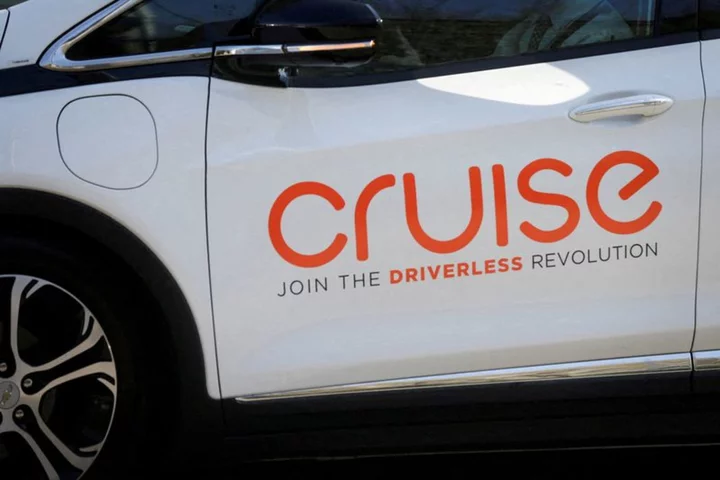
GM's Cruise to recall 950 driverless cars after accident involving pedestrian
By David Shepardson Cruise is recalling 950 driverless cars from the roads across the United States and may
2023-11-08 17:58
